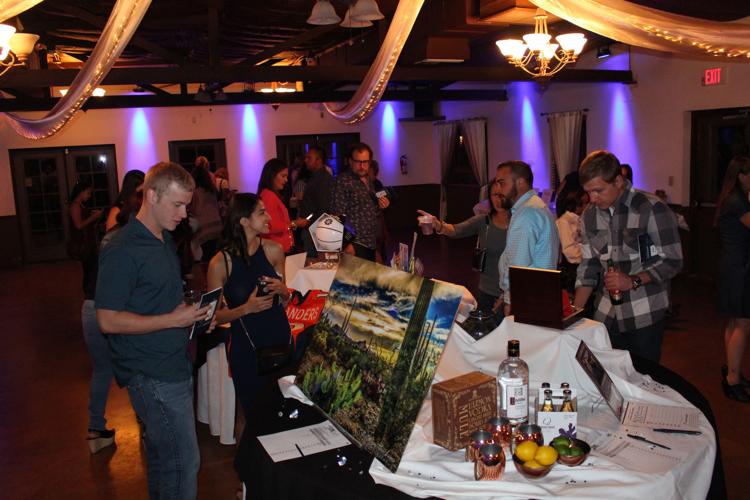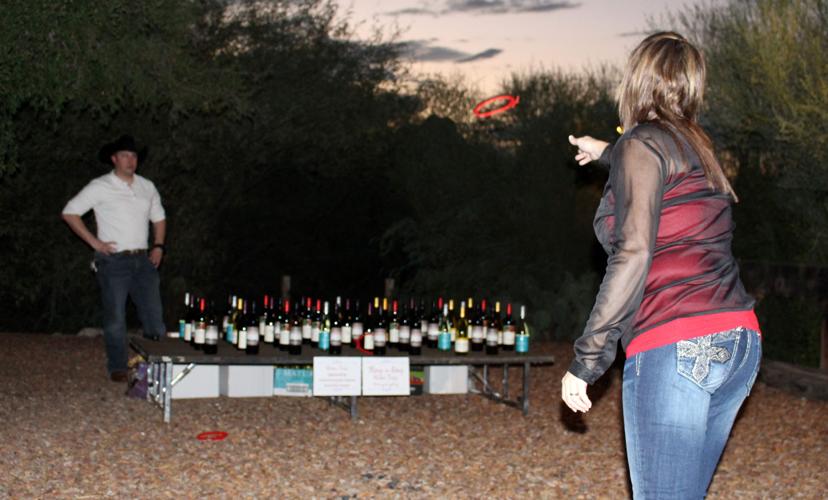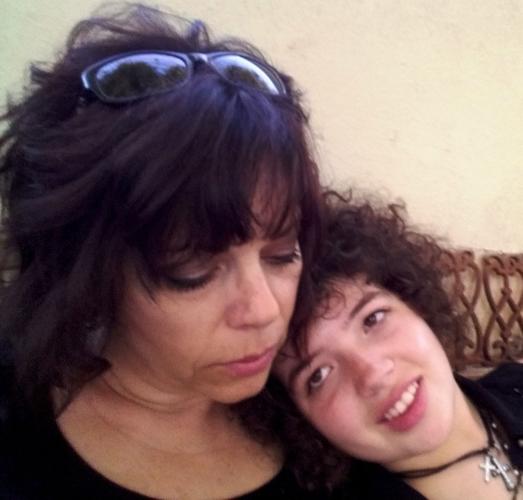The prevalence of autism is one in 64 births in Arizona.
The statistic from the Centers for Disease Control is significant not only for new parents and their babies, but for the entire society: After all, children grow up.
“There are so many long-term aspects to think about, like ‘How we are going to ensure as a community that our children have safe places to live?’ and ‘How are we going to ensure that businesses are open to hiring young adults with special needs?’” said Lynda Weigel-Firor, a member of the board of directors for the Autism Society of Southern Arizona and co-chair for the Jeans and Jewels Gala on Oct. 15. “We have to plan our children’s lives long into adulthood and these are really big social issues that you can’t tackle by yourself.”
The issues hit home for Weigel-Firor, whose daughter, Amber, was diagnosed with autism at age 3.
Now a 16-year-old junior at Canyon del Oro High School, Amber has made amazing progress that Weigel-Firor credits to intervention such as speech, occupational and physical therapies along with applied behavioral analysis. Amber has also worked with outstanding teachers in the Amphi School District and built a support system through Girl Scouts, Special Olympics and Capernaum, a religious-based group for youth with special needs.
“She is doing extremely well and we anticipate that she will be able to live on her own some day and be employed, but she will always need support and care on some level,” said Weigel-Firor.
She said that the Autism Society has been an incredible wealth of resources and support throughout their journey.
Dedicated to improving the lives of all impacted by autism, the organization offers a variety of educational opportunities, including a website with reputable online information and other resources, a library with hundreds of books and videos, and numerous workshops and classes.
Associate Director Brie Seward said the Autism Society is making a concerted effort to develop streamlined programs and make information accessible to families.
Among the new offerings is the “Learn the Signs. Act Early Campaign” an early intervention program in partnership with the CDC that educates families about developmental milestones.
“We want to get information in front of parents to educate them about early childhood markers from birth to age 5. It is a crucial stage of development for children. We want to educate parents on how best to work with their child so they can thrive and provide resources about where they can go with questions. We want to be the contact point if families have questions and need referral information,” said Seward.
Seward said the nonprofit organization also tailors the group’s speaker series to the needs of parents and families. The quarterly series targets parents, professionals and students and features physicians, researchers, professors, therapists and other experts addressing topics ranging from diagnosis and treatment of autism to college level academic readiness.
“We are reaching out to all of our partners in the community so we can direct people about where to go for help when they call. I know firsthand that it makes all the difference in the world: It can change the trajectory of your child’s life. When people call we want to be able to offer everything they need to change their path to a brighter future for their families,” said Seward.
Weigel-Firor emphasized the society provides vital assistance in navigating the health-care system.
The nonprofit Autism Society also offers a variety of base programs for children on the autism spectrum including Sonoran Dolphin Swim Club, sensory friendly films and a partnership with the Hermitage Cat Shelter that provides pet therapy. Teens and tweens can enjoy science and math camps through a partnership with the University of Arizona, and social, recreational and fitness opportunities through a new partnership with Playformance.
Weigel-Firor said the society is also a great advocate as families plan for the transition to adulthood; she credits members of the board of directors with helping to prepare young adults for employment and promoting the benefits of employing those with special needs among local businesses.
“Children with special needs are extremely loyal and they are very hard-working. The turnover rate for people with developmental disabilities is significantly lower than employees without disabilities: Those with special needs are very dependable and motivated,” said Weigel-Firor.
The Autism Society also provides resources for adults who may not have been diagnosed when they were young. “We have a significant increase in calls in the office from adults who want to know what support there is in the community for them and from aging parents looking for resources for their adult children with autism,” she said.
She understands the isolation that many people feel when they have a child diagnosed with autism and said that knowledge and information can turn everything around.
“My optimism comes with knowledge and connections. I don’t want to sugarcoat it: It is heartbreaking to have a child with special needs — it is kind of like chronic grief — but you have to push forward and do the best for your child,” she said.







